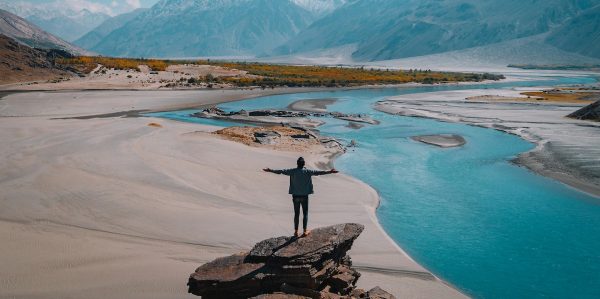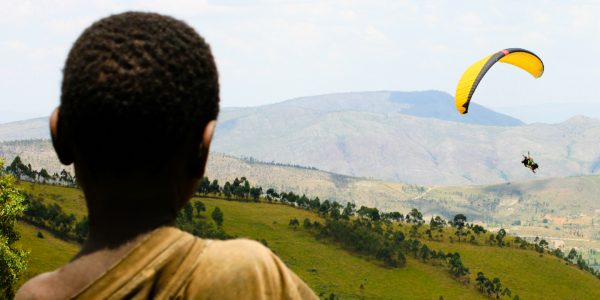Whether you’re camping out in the middle of nowhere or staying at the Ritz, traveling can be dangerous. Before you even realize what’s happening, you can find yourself in a survival situation. Consequently, there’s a lot of advice that gets tossed around about how to keep yourself safe. And unfortunately, some of that advice is BS.
Recently, knowledgable people took to the internet to debunk bad survival advice. Really, it could save lives. How many of these did you already know?

36. Danger Noodles
If you ever find yourself in snake country, make as much noise as possible. Most people want to avoid snakes so they stay quiet, but snakes are more scared of you than you are of them.
Talk loudly, stomp, but obviously keep an eye and ear out for any fellas who don’t want you to be there.

35. Make That Call
You do not need to wait 24 hours to report a missing person.
If you think someone is missing, report it as such. The faster a missing person report is filed the greater the chance the person will be found.
Especially if it’s a child. Missing children are at high risk during the first 24 hours especially if abducted.
In 76% of child abduction cases resulting in death, the victim was dead within 3 hours.
88.5% were dead in the first 24 hours.
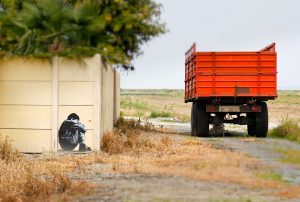
34. Don’t Try It At Home
Removing a bullet is more dangerous than leaving it in. Trying to remove it can tear vital organs, it can be pushed in even deeper, or removing it can cause the person to bleed out.

33. Mouth-To-Mouth
Rescue breaths are wildly overrated in most movies and TV shows. You’ll see someone in cardiac arrest, and the rescuer will stop giving compressions and focus on breathing into a persons’s mouth and BLAMO!
Awake, alert, alive!
Nope. Don’t do that.
Your body does store a fairly decent amount of oxygen in its blood at all times. If someone in front of you OD’s and their mouth is covered with saliva/vomit, or if someone collapses in front of you of a suspected cardiac arrest your plan of action is twofold:
- Are they breathing and do they have a pulse? This is easy to mess up especially in a moment of panic. My rule (as an EMS provider) is that if you don’t feel it in 10 seconds, it’s not there.Advertisement
Start compressions! If they are not in cardiac arrest they will let you know — and the law covers you under Good Samaritan clauses in most of these cases.
Advertisement - If you are the only person attending to this body, do not stop and give rescue breaths if help is on the way and will be there soon.Advertisement
It takes about 4-7 decent compressions to get blood recirculating in the body after stopping to give mouth-to-mouth. That’s a lot of blood, carrying a lot of vital oxygen reserves, that aren’t making it to the brain.
AdvertisementObviously if you’re a long way out from help, and you feel safe to do so, give rescue breaths. But it should NEVER be priority #1.
Advertisement
By the way, if you hear ribs crack, make a face, make vomit noises if you have to, tell the person their bones are grossing you out, but don’t stop compressions.
Because what are compressions? That’s right. They are number one.
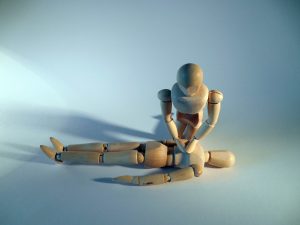
32. Step One
The first mistake is to look for food and water first before having a shelter up to keep yourself dry and warm!
When I say shelter, that includes having a fire too. When you are wet and exposed to the elements, your core body temperature can drop and you can get hypothermia if it gets too cold and you would burn more calories than necessary.
Another big reason for building a shelter first is to keep yourself off the ground because the ground is an infinite heat sink which means you lose your body heat way faster than you would think and will be more exposed to the cold and elements.
Yes, it’s good to be near a water source, but remember that it’s always colder around rivers, streams, lakes, and oceans. Make sure you are able to easily gather shelter and fire material within the area.

31. Don’t Suck
Sucking snake venom out of a bite wound will not help the situation, and in fact might make it worse. The best thing to do is remain calm, and try to make it to a hospital without raising your heart rate.
Also, remember that there’s no such thing as “level of toxicity” in a survival situation. The most dangerous snake on the planet is the one that just bit you.

30. Try Easier
The best one I can think of is that you should never brace yourself if you are about to get into a accident. Instead, try to go limp; you’re more likely to walk away with minor injuries if you go limp.
That’s how drivers who’ve been drinking survive crashes.
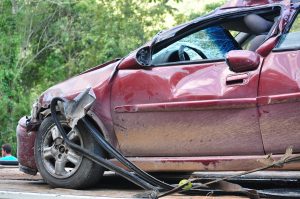
29. He’s A Fungi
If you have to forage for food, avoid mushrooms entirely. Odds are so slim you will find an edible kind that you’re much better off looking for things like nuts, seeds, and berries.
They also hold negligible amounts of calories so even if you are knowledgable about fungi it still isn’t worth it.
Guess the only scenario where you might go for it, is if you have knowledge on edible mushrooms and stumble upon a grove full of them.

28. But I’m Thirsty!
One ‘survival tip’ that is a myth is the idea that you can drink water from a cactus. In reality, you can only drink from a small minority of cacti without having certain health consequences.
So unless you’re an expert, steer clear.
It’s the barrel cactus you have to avoid especially. In old westerns the cowboys used to slice off the top and drink from it.
It’s a nice way to close up your throat (from the extremely high salt content).

27. Keep It Tight
If done right a tourniquet should hurt like crazy and you’re going to want to loosen it, but in the words of Egon Spengler, “It would be bad”.
Gradually loosening an applied tourniquet over time is a thing I still see in 1st aid training videos for some reason. Don’t do that, once a tourniquet is on remember (and mark the person if you can) what time it was applied and leave the rest to doctors in a stable environment.
Loosening a tourniquet may result in blood loss returning which requires re-tightening it.
Tightening and loosening repeatedly may cause (on top of additional blood loss) blood to pool up inside the limb which can cause even more damage.

26. Aggressive Vegetarians
Some people seem to think that herbivorous animals are friendly and peaceful, so you are safe being around them and their presence will show you where food is.
Seriously: everything from cows to deer can and will kill you if you make them angry. It is usually a good idea if you are in the wild not to get near any large wild animal, but herbivores can often be even more aggressive than the predators.
If a predator attacks you, you have a fairly good chance of scaring it off, especially if it’s smaller than you, because it’s likely only looking for food.
If a herbivore attacks you, you’re in trouble because that means it genuinely wants to kill you.

25. The Pointy End
If you get stabbed with anything, don’t pull it out since it could be the thing that preventing you from bleeding out.
Instead immobilize it and go to the hospital where they can stop the bleeding when they remove the object.
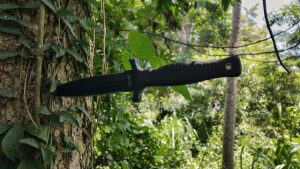
24. Duck And Cover
Don’t stand underneath doorways in case of earthquakes.
Doors and door frames are just not made the same anymore, so you’re more likely to sustain more serious injuries if you do. You’re better off staying hidden underneath a desk or table.
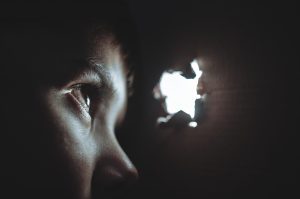
23. Fireball Won’t Warm You
Some people think you can drink alcohol to stay warm. You sweat, your blood will rush to your skin, and you will freeze and die much faster.
It also thinks your blood.
But the thinning of blood doesn’t play as a big a factor as does your blood vessels dilating. This in turn causes increased blood flow near the surface of the skin which heats your skin up.
This becomes a problem because of the way your skin and ultimately your body regulates temperature. Your skin has thermosensors but they don’t just detect temperature intuitively, but rather through the rate at which heat can be transferred to/from you.
That is why you can touch two separate things of different material (i.e. metal and cloth) which are at the same temperature and yet you’ll perceive one as colder/hotter than the other.
The metal is transferring heat from you faster than cloth and thus would feel cold.
Now because drinking sort of sabotages this mechanism by indirectly heating up your skin from increased blood flow, your skin isn’t actually able to accurately detect the difference in temperature between the air and yourself.
As a result, you feel warm but in reality are losing heat faster than you would have had you not drank.

22. Bear With Me
I can think of some good ones (basic wilderness survival is required to be taught where I live).
Don’t drink your pee if you’re thirsty. It’s high in salt and will make you MORE dehydrated, just like ocean water.
Eating snow when you’re thirsty is also bad — it lowers your core temperature and you can become hypothermic.
Don’t play dead with all bears. Depends on the bear — some will definitely attack you if you play dead.
Grizzly bears: stand your ground and back up slowly.
If it becomes irritated, get into the fetal position and cover your neck and play dead.
Black bears: throw rocks and sticks at it, and make a LOT of noise.
From my experience, black bears are skittish and run away.
Polar bears: back away slowly to safety. If they attack pray they kill you fast defend yourself by any means necessary
Remember to always carry bear spray or a gun if you’re in bear country.

21. More Snake Things
When talking about survival in the wild, I have heard both:
“Red and yellow, kill a fellow. Red and black, friend to jack”.
Or: “Red and yellow, friend to fellow. Red and black, get back jack”.
Terrible rhyming scheme that seems to have confused half the people it was taught to.
If you see a snake that’s any combination of red yellow and black, just assume it can kill you.
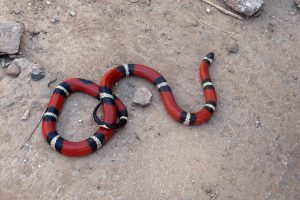
20. Cottoning On
“Cotton wicks moisture”. Cotton is probably the worst material to wear in an outdoor survival situation because it holds moisture and in doing so loses its ability to keep you warm.
This is what wool is for.
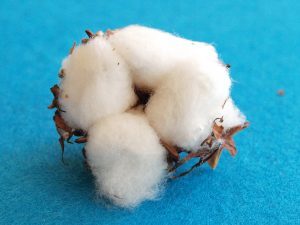
19. Just Go In The Ocean
It wont kill you but don’t pee on a jellyfish sting. It will actually release more of the toxin.

18. Don’t Get Survival Tips From YouTube Videos
There are a lot of YouTube videos on how to disarm an attacker from close range. Don’t do it. You’ll die before you can yell yeehaw.
If you haven’t trained extensively in real self defence, you should never try to fight an armed opponent.
Just give them what they want or run. Those videos usually have the person letting the moves be put on them very easily. But in reality a lot of those moves need to be executed at extremely fast speed with practiced precision.
Otherwise you will just end up in a wrestling match against someone with a knife, which usually won’t end well.

17. Huff And Puff
Trying to outrun a tornado is about the worst possible thing you can do in a tornado situation.
Take shelter: get underground, go into an interior room, lay in a ditch while covering your head if you have to. Tornadoes are basically like three-year-olds throwing temper tantrums, except instead of toys, it’s cars, buses and trains they’re throwing around.
A vehicle of any kind is about the last place you want to be when a tornado comes through.
And the NOAA has this to say: “Vehicles are extremely risky in a tornado.
There is no safe option when caught in a tornado in a car, just slightly less-dangerous ones. If the tornado is visible, far away, and the traffic is light, you may be able to drive out of its path by moving at right angles to the tornado.
Seek shelter in a sturdy building, or underground if possible”.
So, in short: never try to outrun a tornado and anyone who ever tells you otherwise is objectively wrong and spreading dangerous misinformation.
End of discussion.
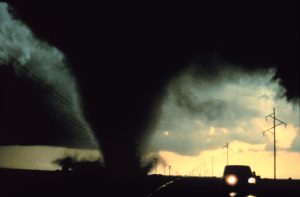
16. Hot And Cold
A lot of Southeast Asians believe going from heat to air con, jumping in a swimming pool on a hot day, or even fans will kill you.
So many deaths happen every year because people are afraid of being shocked to death from going from hot to cold too quickly.
The air conditioner part is a myth, but the sudden jump of a very hot person into ice cold water one isn’t. A very hot person will have a lot of warm blood flowing through vasodilated skin, the very sudden return of a lot of cold blood to the heart can trigger an arrhythmia which could be fatal.
You’ll never drop the temperature of the blood that fast with fans or air conditioning though.
Because lots of people get away with it (i.
e. don’t get an arrhythmia) it continues to look safe. You can still go in the water, just go in a bit slower to give yourself time to adapt.

15. Who Let The Dogs Out?
I’ve seriously heard people say you can stop a dog attack by sticking your finger up its bum. I’ve read this a few times. Not a good idea.
Here are the best ways to deal with a dog attack:
Try to move away slowly, sideways with your arms at your sides so that you’re not threatening.
Don’t look at the eyes and don’t smile, both are seen as a challenge.
Don’t run away, the dog will instinctively chase you.
Get up high if you can, dogs can’t climb very well.
If it hits the fan, do the opposite of looking unthreatening.
Stand tall with your arms in the air and growl or roar. If there’s something nearby, throw it at the dog to make it think twice.
Wrap clothing around your arm to hand to the dog should it go in for a bite.
You’re pretty much guaranteed to be bit so make it in a place that is less important and less likely to bleed out.
Don’t lose your footing or fall to the ground. You’ll be toast. Don’t pull away from the dog if it has bitten you, this will cause more damage. Once the dog has bitten you it probably won’t let go.
Fingers in the eyes are good.
Jumping on the dog with all your body weight is better. If you break their ribs they will probably give up.
Staying away from aggressive dogs is your best bet.

14. Hot Air
One thing you see a lot in older movies and even today is to conserve your water if you’re in a desert or if you lack water.
Never do that. If all you do is drink enough to stop being thirsty, the water won’t reach necessary organs and parts of your body.
Over time you’ll be underhydrated and can suffer the effects of dehydration without ever feeling thirsty.
The best usage of your water is to drink at a set interval even if you’re not thirsty.
Also don’t drink large amounts of water all at once, your body won’t be used to it and more of it is going to be wasted via urination than if you space out reasonably sized swigs throughout the day.
In the same vein, if you are ever hiking, working, or going to be outside in hot and dry climates, leave the shorts and tank top at home, and instead go for thin and loose-fitting long sleeve shirts and loose-fitting pants.
The biggest threat to your health is the sun, so avoid direct sun exposure whenever possible. Sunblock is solid enough for shorter trips but you’re going to be sweating off even the best of the stuff so be sure to constantly reapply when directed to or if your skin gets to wet.
Loose fitted clothing also helps slow down how fast your sweat will evaporate into the air. Normally you want to have sweat evaporate as that is how your body will lose the excess heat as the sweat will draw heat away from your body and cool you down when wind hits you, but in this case your losing sweat too fast for your body to transfer much if any heat as the sun is hot enough to evaporate your sweat as soon as you start sweating.
Limiting your evaporation also stops you from wasting a ton of water via constantly sweating which is one of the biggest factors of water lose you should avoid.

13. Walk It Off
I watch a lot of fight videos and one of two things pretty much always happens when someone gets knocked out: Either their friends come and try to pick them up, shake them, and slap them on the face to regain consciousness or they are left there on their back while people film and laugh and say, “You got knocked out”!
These are both bad things to do because that person has just suffered possible serious trauma to their head, especially if they smacked it on the pavement when they came down, so shaking them awake is not a great thing to do.
It might seem like leaving them be and recover on their own is a better idea, but it’s not always because they run the risk of choking on their tongue.
The best thing to do is put them in the recovery position which will make sure they don’t have problems breathing until they regain their bearings and if they don’t after a while, it’s a safe way for them to be until medical help comes.

12. On The Rocks
Don’t put severed parts on ice.
It’ll practically give the dead tissue frostbite, thus making it near impossible to reattach.

11. Belt Up
Wear a seatbelt. There’s myths about it being bad if you go into a lake or there’s a fire, but 1) that is an incredibly tiny proportion of car crashes and 2) If you’re in that situation, you’re far more likely to be knocked out and die of inaction if you’re not wearing a seatbelt.
I know this is a mundane tip, but you’re far more likely to be in a life-threatening car crash than be stabbed or be in a falling elevator.
Wear a seatbelt.

10. 3, 3, 3
You can last 3 weeks without food, 3 days without water, 3 hours without shelter (in harsh conditions), 3 minutes without air, and 3 seconds being kissed by your aunt Cathy.
Yes, you could last longer in a controlled environment, but knowing those numbers would come in use in a survival situation, which means you would be burning upwards of 1,500 calories a day just trying to build shelter/stay alive.
It’s more of a broad outline of where your priorities should be, and it’s easy to remember.

9. Alone At Night
If you’re walking alone at night, putting a key between each finger (with the thought that you can punch someone and they’ll be impaled by three keys) is useless. You’re much more likely to hurt the webbing on your fingers since the grip you have on each key will be really weak. Instead, put a single key between your thumb and forefinger (parallel to your thumb) and make a fist.
This still isn’t a great defence, but it is an improvement over simply a fist.
Also, don’t try to kick a man in the crotch unless you have an amazing shot (in which case, you’re probably better off running anyway). If you miss or don’t kick hard enough, both of which are more likely in a the case when you’re likely panicking, you’re just going to cause mild discomfort and anger him even more.

8. Candy>Medicine
If a diabetic is having a reaction and becomes unconscious, do NOT give them insulin.
They need to get their blood sugar up, and insulin does literally the opposite.
Screw the media for always portraying diabetics as needing an injection to save their lives…
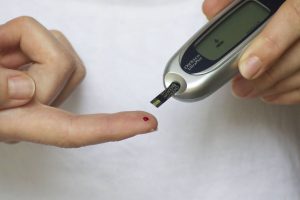
7. Charge!
If you’re about to get attacked by a shark swim directly at it. You’re probably about to die, might as well give it your best shot. Sharks don’t want a fight. They are curious as to what you are and they wanna nibble on you.
Of course to a human a nibble means being chopped in half. Anyways if a shark senses you are a threat it will possibly retreat as it does not want a fight and would rather catch an easy bite to eat.
If it does attack you, that’s when you try and go for the eyes.

6. Cheat Code
I’ve heard this urban legend about what you should do if someone tries to rob you at an ATM machine.
“If you input your PIN number backwards in an ATM it will withdraw money, but it will be stuck, and the police will be notified in the event of a robbery”.
It’s completely false and you could get killed or seriously hurt if you play dumb like you don’t know your PIN.
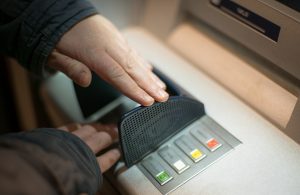
5. Well-Seasoned But Dead
There was a BS article floating around on Facebook a few years ago that stated that if you’re having a heart attack you can stop it immediately by taking a spoon of cayenne pepper.
It was reported to literally stop a heart attack immediately.
The only outcome of trying this is that you’ll be choking on a mouthful of cayenne pepper whilst you die from a heart attack.
Do not take cayenne pepper, call a bloody ambulance, that’s what we’re for.
I was considering linking a site I found that made this argument, but then I reconsidered because I didn’t want to be inadvertently spreading false and harmful information.
You can Google it if you’re that interested in seeing the BS for yourself.
One extract from the page I found:
“Cayenne is also useful in boosting the heart rate as it strengthens the pulse”.
Literally the opposite of what you want to do in a heart attack.
Do not raise the patient’s heart rate.

4. Just Not Yellow Snow
Don’t eat snow to stay hydrated if you’re in a winter survival situation, losing the heat to the snow while eating it is more dangerous than dehydration.
Heat it up or let it melt in a container first to lose less heat.

3. Top Dog
Apparently some people think the best way to survive a wolf attack is to bend down and show the wolf you’re submissive him and therefore pose no threat.
If you do this, you’re dead. The wolf will 100% kill you. Your best bet is to walk away WITHOUT TURNING YOUR BACKS ON THEM, maintaining eye contact the whole way.
If you look away or turn your back, the wolf’s killer instinct will kick in and it will kill you. Don’t make a lot of noise or aggressive movements toward a wolf the same way you’d do to a black bear because most likely it will be seen as a challenge, not a threat.

2. Under The Bridge
Hiding under a bridge if you’re caught on the road in a tornado is a bad idea no matter what anyone tells you. The concrete over your head is no protection, the winds will channel through like a wind tunnel and blow you right out to your death.
Hide in a ditch instead; against your instinct to not be under a solid structure that looks more reassuring, but the winds will blow over you instead of at you (hopefully).
This is my biggest beef with the movie Man of Steel, I hope nobody died because they saw Pa Kent telling people to get under a bridge for safety and thought it was a good idea. Don’t do it, you will die.
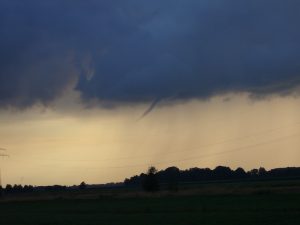
1. Man Overboard
If you ever fall off a ship/ferry at sea and were lucky enough to be spotted — don’t try to swim your way to safety.
The more you try to swim, the lower your chances of survival. Just try to keep afloat and conserve energy (and body heat) while the rescue team does what they’re supposed to.
Unless you are in hypothermic waters, the best bet always is to stay afloat without trying to swim to anywhere. This information about falling overboard, hypothermia and conditions, survival at sea etc.
are based on my own experience of 12 years sailing on merchant ships.


